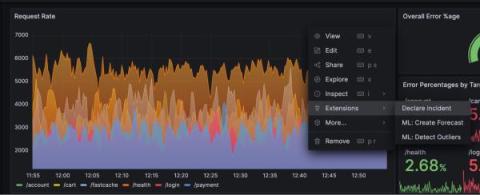The Challenges of Rising MTTR - And What to Do
Data volumes are soaring. Environments are increasingly intricate. The risk of applications and systems encountering breakdowns is sky-high, and the mean time to recovery (MTTR) for production incidents is moving in the wrong direction. Disruptions not only jeopardize critical infrastructure but also have a direct impact on the bottom line of organizations. Swift recovery of affected services becomes paramount, as it directly correlates with business continuity and resilience.











